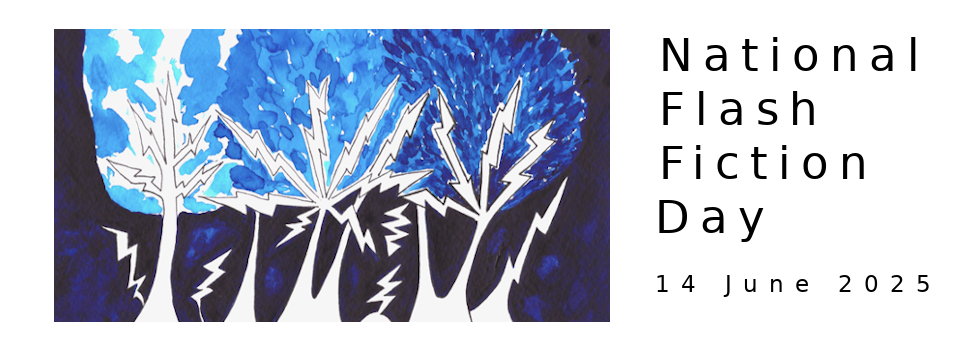Everything is a collective effort at Flashquake. We’ve got a great team working together to deliver the best content because our readers deserve just that. With that being said, we want to offer a collective response to what it is like to publish flash.
From Cindy Bell, Publisher and Editor-In-Chief:
We have a long tradition of publishing flash fiction, flash nonfiction, and short poetry including prose poetry. We've got a solid decade behind us, but aren't taking anything for granted. We strive to improve, to grow, and to offer our readers a quality publication. We're adding 10-minute plays, translations, multi-media, and reviews to the mix this year!
From Kellie Doherty, Editor and Segment Leader of Critique-A-Flash:
My experience with Flashquake has broadened my mind to what flash fiction is and how many writers love the style. As the segment leader of Critique-A-Flash, I am exposed to a wide variety of flashes each week. The quality ranges, of course, but, as long as they meet our requirements, I critique them, stating what could be changed or what I particularly liked. Writers, I believe, like the test of penning a flash. It challenges the very core of what a good story is truly about and, with my job, I feel like I'm helping those writers become better at what they love to do and allowing them to get the publication they rightly deserve. It's hard to write good flashes and the ones who try should be rewarded.
From Nichelle Seely, Editor:
Working with flash fiction has been an eye-opening experience. It's been an education to be on the editing side instead of the submission side. When faced with choosing four out of a hundred submissions, I can now appreciate how meaningful each nuance of care and style becomes. Amazing pieces pop out of the field with their originality of subject or beauty of language. At first I felt, 'who am I to judge,' and yet, that was my responsibility--it's humbling! And because Flashquake responds to every submitter with a brief critique, it reminds me that there's a human being with hopes and dreams on the other side of the story, someone who might be hurt or encouraged by whatever I have to say. I try hard to include something that works as well as the reason a story was rejected, because almost everything I've read has some merit. It usually takes me longer to compose my two sentence critique than the time it takes me to read the story.
Being an editor for Flashquake has improved my own writing. Flash fiction by nature must be laser-beam tight, and extraneous verbiage sticks out like a corn stalk in a pumpkin patch. My spidey-sense for needless words gets stronger every issue, and I now have a much better idea of what an actual paid editor must go through, and what they're looking for (or at least what puts them off!)
From David Bowles, Editor:
For me, flash fiction at its best is about the relationship between the author and the reader, the power of resonant writing to interact with a reader's own brain and create a story that is just hinted at on the page. This sort of intimacy is what many writers crave: a one-to-one collaboration with the audience from which powerful shared narratives arise. Finding pieces that accomplish this amazing feat is a joy for me, and sharing them with other word junkies is almost a responsibility.
From Elia Seely, Guest Editor:
I write flash fiction for the challenge of distilling a story down to its purest elements. I read this genre for the same reasons; that pure shot of "ahh" that comes from a perfectly measured portion of character, tone, setting, dialogue. Editing for an online magazine offers and immediacy of experience for both myself and the submitters; it feels good to be able to respond with some feedback right away. I love seeing people's imaginations at work, at it inspires me to get my own work out there.
--
Our Spring issue is now up in a new format we are proud of and excited to deliver to our readers. We also just opened up our submission period and will be accepting literary works of flash as well as art through May 20th.
At Flashquake, we have a theory: Words are meant to make an impact, to leave a trace, to enlighten and to inspire. We hope you’ll read along with us.



